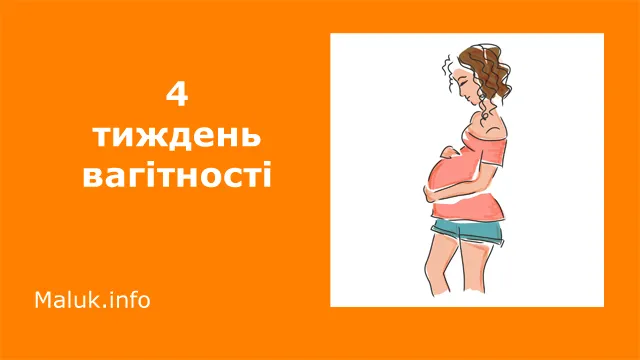Pregnancy calendar: 4th week of pregnancy
Pregnancy calendar by week. An experienced doctor tells how a child develops in the womb and what changes occur in the pregnant woman’s body. All the most important things about the 4th week of pregnancy
You probably don’t know if you’re pregnant yet. However, incredible changes are taking place in your body. The child, which at fertilization consisted of one cell, now has up to a hundred cells. Organs and systems will be formed from these cells in an incredibly short time.
So, what should you pay attention to in the fourth week of pregnancy?
The fourth week of pregnancy – changes in your body:
Most women do not feel any special changes during the fourth week of pregnancy. However, in some women, the process of attachment of the embryo to the walls of the uterus (implantation) can be accompanied by a slight pain in the abdomen, a rise in temperature up to 37 degrees Celsius. In any case, it should be a minor inconvenience. If you are worried, it is better to consult with your obstetrician-gynecologist. In general, the first advice is to choose a doctor you can trust. A good doctor can help or advise a lot, especially when this is your first pregnancy and everything is new and unknown to you.
You can check whether you are pregnant with the help of sensitive pregnancy tests . However, it is better to carry out the test at the end of the next week, after a significant delay in menstrual bleeding.
The fourth week of pregnancy – how does the baby grow?
This stage of the child’s development, a still fertilized egg, is called the actively developing blastocyst stage . Implantation (immersion of the embryo into the walls of the uterus) should take place from the 5th to the 8th day of embryonic development. If the embryo splits in two at this point, then you may have two identical (identical) twins. At the place where the embryo attached to the wall of the uterus, the placenta will form in the future. The placenta is a kind of feeding station for the baby during its stay in the uterus. After implantation (immersion), the blastocyst (the embryo of the child) begins to produce the hormone human chorionic gonadotropin, due to which pregnancy tests show two strips. However, the hormone chorionic gonadotropin is necessary for the successful course of your pregnancy in general.
Author: Olga Letnyanchyk, doctor
Read also:
– Pregnancy calendar: from 1 to 40 weeks

